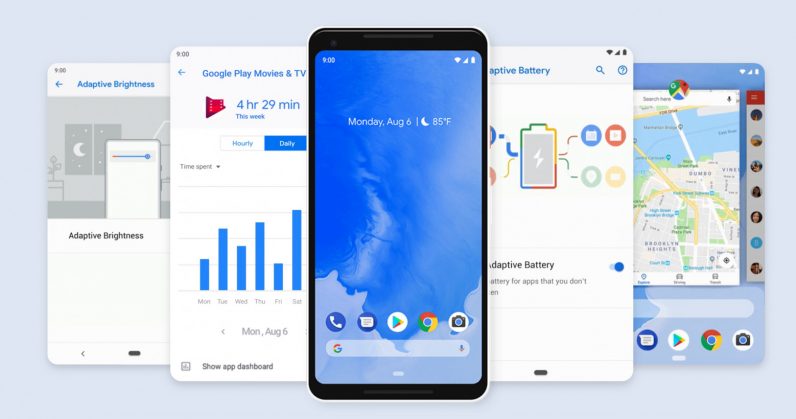
Google has finally let the cat out of the bag: its ninth version of Android, codenamed Android P, is called Pie – and you can get it right now if you’ve got a Pixel phone.
The company released the first preview of Android 9 for developers back in March, with support for notches and multiple cameras (so apps could work better with them), improved notifications, some design tweaks, AI-powered adaptive brightness, and under-the-hood enhancements.
With today’s official rollout, it’s talking up a bunch of features that we’ve seen in subsequent previews. That includes App Actions, which contextually predicts what you’ll want to do next with your phone (like firing up your favorite playlist when you plug in your headphones), and Slices, which brings up useful bits of apps without requiring you to open them (like a shortcut to get a Lyft home when you look up the app in Search).
There’s also the Digital Wellbeing package, which bundles an App Timer that lets you set a limit on how long you can use certain apps, a new Do Not Disturb function that suppresses visual interruptions like notifications, and the Wind Down feature, which turns on Do Not Disturb and fades your screen to grayscale around the time you go to bed. If you’re on a Pixel, you can try it right now by signing up for the beta using your email address associated with Google Play.
On the interactions front, you’ll find a revamped Quick Settings menu, support for navigating across the OS using gestures, the ability to grab a screenshot from the power menu, and smart suggestions for replying to messages in notifications.
For added security, Google is baking in support for dedicated security chips that can protect sensitive data, and will restrict apps from accessing your phone’s mic, camera, and other sensors when they’re running in the background.
For those who aren’t using a Pixel, you’ll have to wait at least until the fall, when Pie will begin rolling out to Android One devices, as well as those that were part of the P beta program (from Sony, Xiaomi, Nokia, Oppo, Vivo, OnePlus, and Essential).

